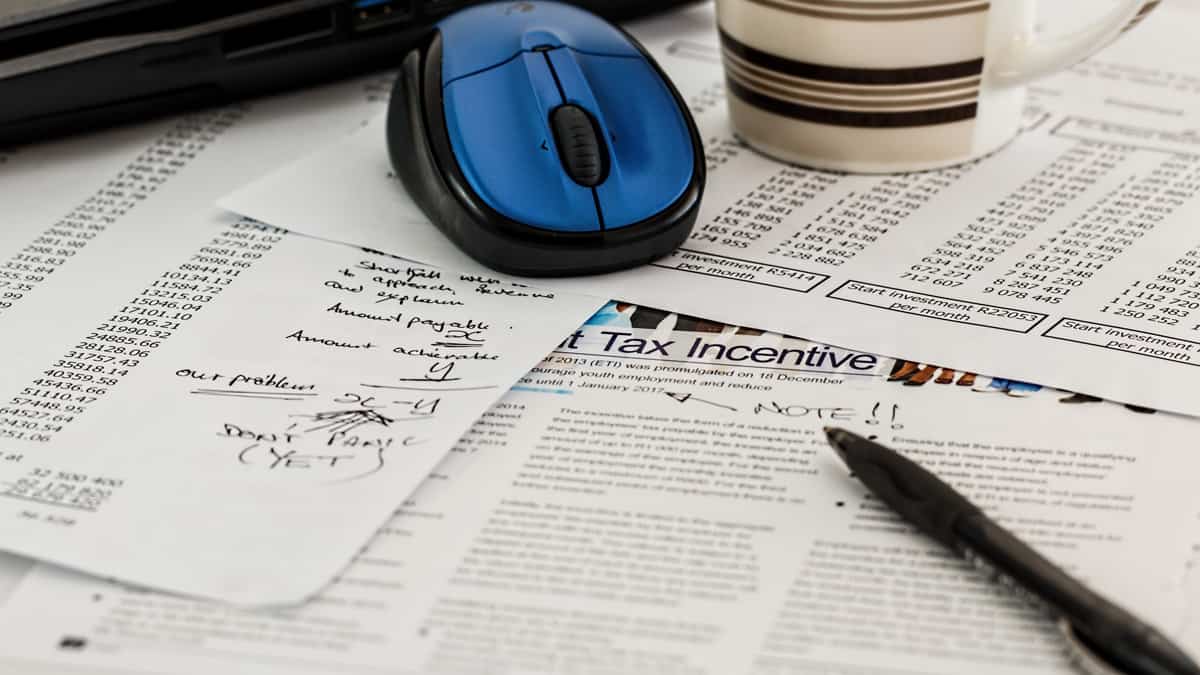Top 5 Tax Mistakes Small Businesses Make
Fines and penalties for mistakes on your taxes can be staggering. Here are some of the most common small business tax mistakes, and how to avoid them.

Everyone makes mistakes, but we’re here to make sure they don’t happen on your taxes. Let’s learn from some common and avoidable mistakes others have made when filing taxes for their small businesses.
1. Failing to File or Send the Proper Forms or Payments
Depending on the legal structure of your business, the type of industry you’re in, and whether or not you have employees, you’re required to file and send any number of different forms to the IRS, and possibly your state tax department as well.
Some have to be filed quarterly, such as payroll taxes, estimated income tax, and sales tax. Others are submitted annually, and still others, such as W-2 and 1099 forms, must be sent directly to your employees and other workers you’ve paid throughout the year so they can file their own taxes.
Most payroll and accounting software can be set up to remind you of the forms and payments required for your business; you can even print and e-file through many programs. Just to be on the safe side, you can have your accountant set up an annual calendar so you know what’s due, and when. The IRS publishes a tax calendar each year listing the due dates for businesses and individuals.
2. Underestimating and Underreporting
If you’re self-employed or filing as a sole proprietor, a partner, or an S corporation, you’re most likely required to make quarterly tax payments based on your estimated tax bill for the year. The government knows you probably can’t guess the exact amount, but it does want you to get pretty darn close. If not, you can face a penalty for underestimating and underpaying.
If the IRS believes you were negligent or “unreasonably careless” in reporting your income, or if you substantially understated the amount you owe, it can hit you with a 20% penalty. These “mistakes” are more willful than simple math errors, but you should always strive for accuracy and, of course, be scrupulously honest.
If the IRS finds any attempt to intentionally defraud it, the fine can be as high as 75% on the money you owe, plus you might face criminal tax fraud charges.
3. Mixing Business and Personal Expenses
It’s easy to get things mixed up, especially when you’re self-employed or new in business, but the IRS has very strict rules against the commingling of funds. Only business-related expenses can be deducted from your income for tax purposes, and the only way to ensure that is if the finances are kept entirely separate.
This means you must open a separate business bank account, and you should use a business credit card when making purchases for your company. If you are using any of your personal assets for business, such as your car or a home office, it’s imperative to keep detailed records to be able to support any deductions you take. You can’t deduct what you can’t document!
4. Poor Record-Keeping and Organization
Even for businesses that don’t have quarterly filing obligations, taxes should be more than a once-a-year proposition. Leaving it all until the last minute pretty much ensures you’ll miss out on deductions you’re entitled to simply because you haven’t kept track of your spending along the way. Not only that, it could cost you more in accounting fees to get everything straightened out.
Ensure you have a system in place that helps you track income and expenses on an ongoing basis. You should reconcile your cash flow with your bank and credit card statements each month. There are many software programs that help with this, including QuickBooks and Peachtree, two of the most popular. In addition to helping you prepare your tax return, having a good bookkeeping system in place will help you stay on top of your finances and manage them better.
5. Not Taking the Proper Deductions
As for getting all the deductions you deserve, the IRS considers these to be all of the expenses that are “ordinary and necessary” as part of running your business. American Express has a list to get you started. For detailed instructions on exactly what’s deductible and how to handle deductions on your taxes, see IRS Publication 535.
Taking deductions for things you shouldn’t is a potential invitation to an audit, with severe penalties if you’re caught. Even legitimate deductions can trip you up if they’re out of proportion with your income or with what similarly-sized businesses in your industry are claiming.
Beware: if you claim more in expenses than you do in income over several years (meaning you keep showing a loss instead of profit), the IRS may declare your venture a hobby rather than a business, and disallow the deductions altogether.
The Bottom Line
The two best tips for avoiding tax problems are to stay organized and be truthful. As in life, it’s hard to get in trouble if you do what you’re supposed to do when you’re supposed to do it. And of course, act with honesty, integrity, and with care and good intent.
Learn More
When it comes to your finances, you want clear guidance and easy-to-implement tools based on your unique needs. Visit Learn with AOF to get started strengthening your financial management and meeting your goals.
Experience a different kind of financial education. Learn with AOF has flexible, on-demand courses developed by small business owners, for small business owners. Learn on your schedule, with no time commitment or limit. Save your progress any time to fit courses into your busy schedule.









